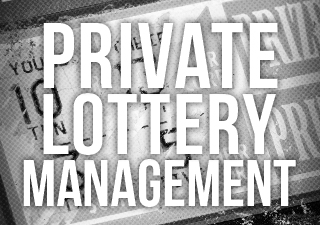Fact Sheet

Private Lottery Management FAQ
The Problem: Our seniors deserve a guarantee, not a gamble, when it comes to their care. The Pennsylvania Lottery funds programs for senior citizens including prescription drug programs, property tax rebates and senior centers. Pennsylvania’s senior population is projected to grow steadily over the next 20 years, reaching nearly a quarter of the population by 2030. Lottery profits are also projected to grow, but historical rates of growth have lagged behind what will be needed.
The Solution: To protect seniors from future service cuts, the Corbett administration is seeking a private management agreement (PMA) to ensure Lottery profits will meet seniors’ needs. Lottery services company Camelot submitted a bid to manage the Pennsylvania Lottery and guarantee at least $34 billion in profits over the next 20 years, billions more than projected profits from the state-operated system.
How will a private management agreement better protect senior citizens and taxpayers?
A Legislative Budget and Finance Committee report projected Lottery profit shortfalls that will threaten the sustainability of senior services. Lottery profits have fallen short of expectations in four of the last eight years. The Lottery has never achieved more than five consecutive years of profit growth, let alone the 20 years of profit growth guaranteed under the PMA. Private management of the Lottery offers an alternative to cutting programs or raising taxes.
What will happen to state lottery workers?
Camelot hopes to expand rather than cut the current Lottery workforce. Under the proposed contract, the state would retain 70 of the 230 Lottery employees, and Camelot has expressed interest in hiring the remaining employees. Union bosses who stand to lose around $100,000 in forced dues should not prevent the state from protecting programs that hundreds of thousands of Pennsylvania seniors depend on.
How can we make sure Camelot delivers on its promises?
To ensure Camelot meets its commitment, the contract includes $200 million in total collateral, from which the state can draw should the need arise. Today, there is no fall back provision when the Lottery fails to meet profit projections and as out-of-state and alternative lottery options grow, this guarantee for seniors is the more reliable plan.
What about lottery privatization in Illinois?
The dispute in Illinois is over how much the private manager increased lottery profits. In Pennsylvania, there is currently no accountability to seniors or taxpayers if the Lottery misses profit goals or loses money. Additionally, Pennsylvania required a $50 million deposit for the Lottery bid, more than twice the requirement in Illinois.
Is the Lottery PMA being rushed?
The contract process began eight months ago with a public request for qualifications from potential bidders and a legislative hearing. The process included in-depth investigations into each bidder. Under Pennsylvania’s Procurement Code, which gives the commonwealth 60 days to consider a bid, the administration must accept or abandon Camelot’s bid by January 16, 2013.
With one bidder is the PMA process competitive?
Only five companies across the globe offer the expertise necessary to run our state lottery. The procurement process in Indiana and Illinois generated only two bidders. In Pennsylvania, three bids were initially received. Camelot submitted its bid without knowing these other companies dropped out due to the state’s extensive protections for seniors and taxpayers, such as $200 million in collateral and requiring the contractor to pay for profit shortfalls. AFSCME, the union representing current Lottery employees, also has an opportunity to offer a bid and exceed the $34 billion guarantee for taxpayers and seniors by January 8, 2013.
Should Pennsylvania sell assets like the lottery?
The private management contract is not a sale of the Lottery, which federal law prohibits, but an agreement to a private-public partnership with management. The commonwealth will retain full ownership rights and inspect and audit the Lottery.
Isn’t Camelot a foreign company? Why do they care what happens in Pennsylvania?
Camelot doesn’t get paid one dime beyond expenses unless it exceeds its profit commitments. In addition, Camelot will hire local Pennsylvanians and incorporate in the state, paying 100 percent of its taxes to the commonwealth.
# # #
For more information, visit www.CommonwealthFoundation.org.
The Commonwealth Foundation crafts free-market policies, convinces Pennsylvanians of their benefits, and counters attacks on liberty.